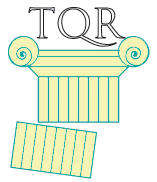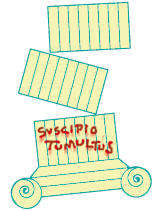Post by rorschalk on Oct 3, 2022 20:53:24 GMT
Dear Mr. VC,
Thank you for your patience. Unfortunately, Guevara did not bump your piece up to the executive suite for final review. Here's what he had say.
**
“Blackridge” started out on an odd note and with an odd sentence—never a good thing. “The wound burned hard for a few hours.” Do wounds burn? I suppose to some degree they do; but mostly they hurt, throb, and cause pain. The story is a story about the military, but about a future military, or a military in a different galaxy or planet than the one we live on now. Well, maybe, I thought. Then I read the line that the distant mountain “watched us all like depraved parents of perverted children.” In English this is called “the pathetic fallacy.” It is called this not because it’s pathetic in the sense we usually use the word—deplorable, worthless, pointless—but because it gives human characteristic to inanimate things (“pathos” means "feeling" in Latin). One does not attribute human traits to inanimate things. A baseball we miss doesn’t sneer at us. The root we tripped on does not chuckle at our stumbling. Mountains don’t watch us like “depraved parents.” I saw many obvious stylistic errors in this effort. I wondered what lay ahead.
A lot lay ahead, and most of it was not that good.
This is a military presentation about an army and war. You read about soldiers, medics, maneuvers, and you experience the kinds of things soldiers endure in wars. This makes for good copy when done right. There are the dangers of war and of combat; the absurdity and incompetence all armies seem given to; and there is your sympathy as a reader for the soldier caught in the midst of all this. Some great writing has come out of this scenario. A couple of titles I think of are To Hell and Back by the World War II soldier Audie Murphy; and The Things They Carried, a set of short stories about Vietnam by Tim O’Brien. This story, though, does not stack up to these literary works and falls short of good military fiction in many ways.
First, there is a lot of odd terminology. Medical personal are not “medics” (what they Army calls them) or Corpsman (what they are called in the Marines). They are called Apothecary. They are attended by “handservants.” They put poultices on wounds—it seems like a kind of medieval set-up but this endeavor obviously exists in modern times. This could be a unique take on army medicine, but it turns out only to be confusing and puzzling. Later in the story, officers are called “Master.”
I don’t think there has been an army that called officers “Master.” Even in the Roman Empire there was what I call cortesía de rango—courtesy of rank; that is, an officer, a general, and a private are all part of the army and treat each other with respect. A general speaking to a corporal does not consider himself a “master,” and, as I said, I don’t know of any army in history where that has been the case. Now, this story may take place in the future or on another planet, but it still doesn’t work. Who wants to read about an army where there is no camaraderie and where the common soldiers are something like slaves? And these sorts of things, plus the previously mentioned grammatical and stylistic failures, are found throughout the whole endeavor. All of this ruins the story as a military tale. Given the diction and the unattractive portrayal of the military, the story does not offer much that appeals.
Thank you for your patience. Unfortunately, Guevara did not bump your piece up to the executive suite for final review. Here's what he had say.
**
“Blackridge” started out on an odd note and with an odd sentence—never a good thing. “The wound burned hard for a few hours.” Do wounds burn? I suppose to some degree they do; but mostly they hurt, throb, and cause pain. The story is a story about the military, but about a future military, or a military in a different galaxy or planet than the one we live on now. Well, maybe, I thought. Then I read the line that the distant mountain “watched us all like depraved parents of perverted children.” In English this is called “the pathetic fallacy.” It is called this not because it’s pathetic in the sense we usually use the word—deplorable, worthless, pointless—but because it gives human characteristic to inanimate things (“pathos” means "feeling" in Latin). One does not attribute human traits to inanimate things. A baseball we miss doesn’t sneer at us. The root we tripped on does not chuckle at our stumbling. Mountains don’t watch us like “depraved parents.” I saw many obvious stylistic errors in this effort. I wondered what lay ahead.
A lot lay ahead, and most of it was not that good.
This is a military presentation about an army and war. You read about soldiers, medics, maneuvers, and you experience the kinds of things soldiers endure in wars. This makes for good copy when done right. There are the dangers of war and of combat; the absurdity and incompetence all armies seem given to; and there is your sympathy as a reader for the soldier caught in the midst of all this. Some great writing has come out of this scenario. A couple of titles I think of are To Hell and Back by the World War II soldier Audie Murphy; and The Things They Carried, a set of short stories about Vietnam by Tim O’Brien. This story, though, does not stack up to these literary works and falls short of good military fiction in many ways.
First, there is a lot of odd terminology. Medical personal are not “medics” (what they Army calls them) or Corpsman (what they are called in the Marines). They are called Apothecary. They are attended by “handservants.” They put poultices on wounds—it seems like a kind of medieval set-up but this endeavor obviously exists in modern times. This could be a unique take on army medicine, but it turns out only to be confusing and puzzling. Later in the story, officers are called “Master.”
I don’t think there has been an army that called officers “Master.” Even in the Roman Empire there was what I call cortesía de rango—courtesy of rank; that is, an officer, a general, and a private are all part of the army and treat each other with respect. A general speaking to a corporal does not consider himself a “master,” and, as I said, I don’t know of any army in history where that has been the case. Now, this story may take place in the future or on another planet, but it still doesn’t work. Who wants to read about an army where there is no camaraderie and where the common soldiers are something like slaves? And these sorts of things, plus the previously mentioned grammatical and stylistic failures, are found throughout the whole endeavor. All of this ruins the story as a military tale. Given the diction and the unattractive portrayal of the military, the story does not offer much that appeals.


